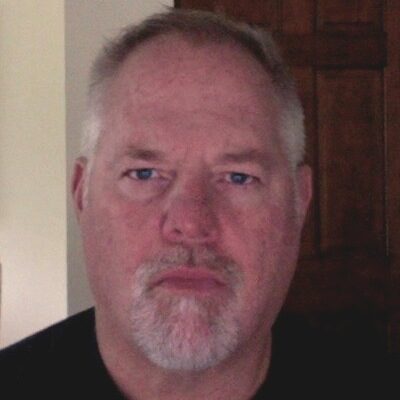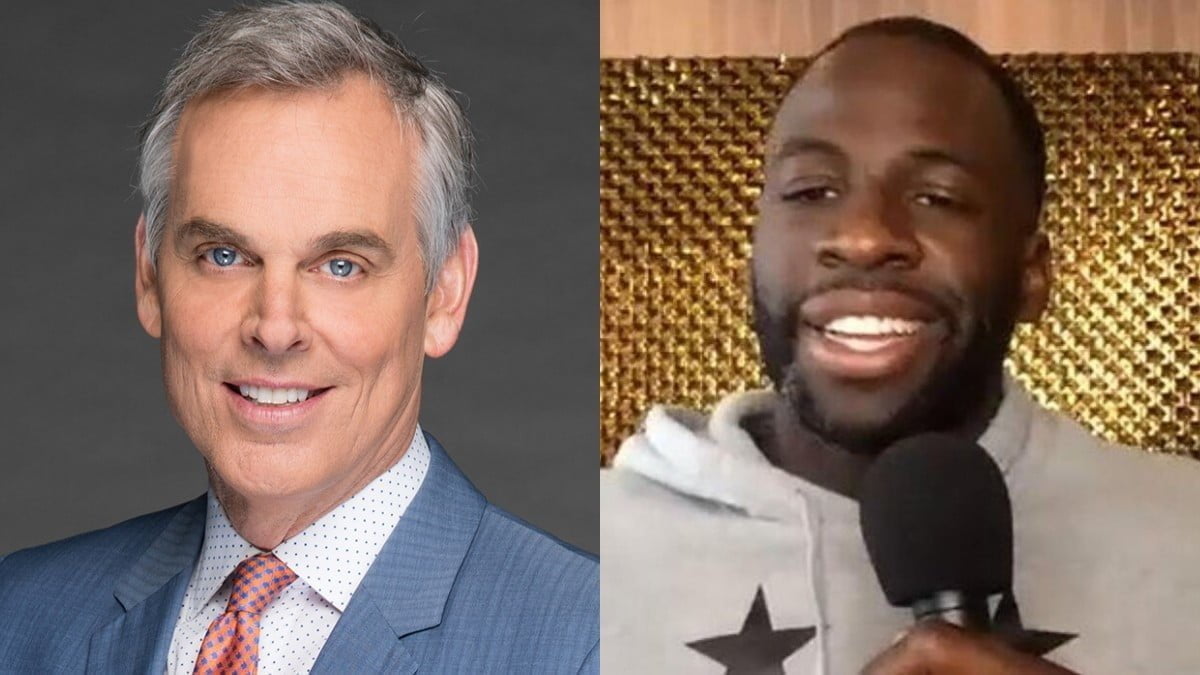The man is the radio equivalent of what Iowa Senator Chuck Grassley is to politics. Both have served their respective areas for about 40 years. During that time, as in a successful marriage, Tony Duesing has been with the same group of four stations through ownership changes, including Entercom, and now Audacy.
With Iowa and Kansas nearly touching, perhaps there’s some longevity secret in the water.
In 1996, the Telecommunications Act removed all national and local restrictions on national ownership that specified the number of stations one company could own in a set market. Groups started consolidating radio stations.
“When we started consolidating stations, AM radio was struggling,” Duesing said. “Rush’s show was coming along and I remember thinking this AM thing isn’t going to last much longer.”
Okay, who hasn’t made a miscalculation?
The consolidation lowered overhead, and groups could lean on sister stations for additional content and promotional material. Back then, Duesing said they had one promotional position instead of today’s four people.
“In particular, KFH was helped by consolidation. It really helped save it in a way.”
With extensive technology advancement throughout Duesing’s career, he’s grateful to one particular product and how it has changed our lives.
“It’s hard to imagine our industry without computers,” Duesing explained. “When we moved into this building seven years ago, it was all new. Even the control boards are computerized. The hard drives are the brains of this outfit.”
From 1983 to 1992, Duesing was entrenched in music-formatted radio, from Country, Oldies, and Top 40 formats. In 1992, Duesing was promoted to Program Director of talk radio station KQAM, and later sports radio station KFH along with news radio station KNSS.
This year KFH has been celebrating its 100th anniversary. Duesing had just been named the stations’ PD during its 75th anniversary.
“That’s when I became particularly interested in the stations’ history,” Duesing explained. “It had been sold a few times and I decided to make some promotions to commemorate the 75th anniversary.”
Duesing said he recognizes the milestone and how much the station has meant to the Wichita community.
“We were a CBS affiliate and carried programs like War of the Worlds, and Radio Mystery Theater. It puts things into perspective when you start recalling that history. I started finding some old photos and audio. We used to have a midday sports show on KFH and one of the on-air folks asked me if we had a copy of their first show. I said I’d look but it was most likely on cassette.”
That little piece of plastic with all that tape hanging out of it where you had to use your index finger to wind it back in.
Duesing started working in Wichita Radio in 1983 just a month after graduating high school. “I learned everything on the fly. There wasn’t a lot of time or personnel for training.”
When he first became PD on KFH, they recently switched from Oldie’s to Talk. “I was the board-op when the PD left because he didn’t like the talk format. The owner said, ‘Okay, you’re PD now.”
At that time the owner was Norman Feuer and Triathlon Media. Duesing went to speak with him because the local general manager had decided he wasn’t going to pick up Don Imus for 50-grand a year. Duesing knew if the talk format was going to work it had to be interesting.
“I told Norm we should get Imus and he thought it was a great idea. Things got better after that move.”
Duesing was born in the Wichita area, and like Doobie, the cab driver in Planes, Trains and Automobiles, he is proud of Wichita.
“I’d always thought I was lucky to be in this market,” Duesing said. “When I decided I wanted to become a PD, I figured I would have had to go to a smaller market and start out. It turns out I didn’t have to leave because KFH switched formats and assigned me as PD.”
Wichita is known as the ‘Air Capital of the World,’ providing fuselages for big plane manufacturers such as Boeing. The huge fuselages are shipped by train to the West Coast. Hawker Aviation in Wichita also makes Cessnas, and Beechcraft planes. The industry brings about 20,000 good paying jobs to the area. Planes are to Wichita what cars are to Detroit.
The city is also the birthplace of Pizza Hut and White Castle.
“Our radio studios are in the same big building Pizza Hut had its headquarters back in the 90s,” Duesing said. Since the pizza giant’s merger with Taco Bell, KFC, and Pepsi, corporate offices moved south to Texas.
Wichita is interesting in that it’s very conservative, but also has a Democrat Mayor and Democrat governor. There are also a lot of middle-Republicans and Independents.
“On KNSS we have Levin and Hannity and they both work well here,” Duesing said. “I’d considered some additions of Alan Derschowitz and Mario Cuomo had a show for a while. Audacy lets us run our stations the way we see fit. They really do look at brand managers as people that know their market best and don’t dictate things to us.”
Duesing picked up Dana Loesch’s show and is pleased with that decision.
“We’re always looking for a good fit whether we have to hire a local talent or go with someone like Dana. She acts as though she works for Audacy. It’s easy to get her to do liners for us and she does well in her time slot.”
Duesing has recently made some changes to the KFH morning show, which just wasn’t working.
“We used to have Mike & Mike, which did well. Then we tried some other shows but they didn’t drive ratings. We had Bob & Tom, but iHeart switched formats and wanted more music. We picked them up again this year.”
As a brand manager, Duesing said you always have to ask yourself if your shows are winning or losing.
“I think local shows do better with two or more hosts,” he explained. “Jim Rome can do it by himself because he’s really good at what he does. One person can get a little boring. The cost is obviously higher to have more, but I think it’s worth the investment. We love doing local and it connects well with listeners. Much more than national stuff.”
Duesing studied broadcast journalism at Wichita State University. In the early 80s, he said the program was lacking.
“When I first went there it was a very generic major,” Duesing said. “They told us they’d teach us radio and television broadcasting. The equipment we used was from the 1950s, antiquated stuff. One of our assignments was to make a commercial. Since I was working at KFH, I did the assignment there. I went back to school and the instructor said, ‘Wow, you did that here?’ I had to break the news to him. I created it at the radio station where I was working.”
Later, the college began to emphasize news and media. The school had a television station on cable that produced a weekly news show where the students did it all.
“I wanted to learn the news part of radio and television. At that point I was happy with what I learned there,” Duesing said.
During his first 10 years in radio, Duesing was focused on becoming a better DJ, and presence on the air. Then the program director job came into being.
“We flipped from an oldies station to a talk station in the early 90s. Once again it was a sink or swim situation. My boss said, ‘Tony, you’re the PD. Figure it out.’ I realized I was 35 years-old and I was the demographic for the station, so I started programming it with shows I would like. We had a food talk show among others. It was horrible stuff. Then I started filling in with network shows like Coast to Coast. I was able to give the people working overnights on airplanes something to listen to while they worked, someone to help them stay awake.”
Like most young broadcasting professionals, Duesing had one eye on bigger opportunities, but in the end, he was already where he wanted to be.
Duesing was approached by one of his regional managers who he’d gotten to know well.
“He called after he left and said he thought I’d be a good fit in Santa Barbara, California,” Duesing said. “He flew me out to look around. It isn’t far from Los Angeles and I liked it. But I ended up not taking it because of the tremendous cost of living and I have a lot of family in the Wichita area. It just didn’t add up to make a change at that point. I had discussions with a station in Denver about the possibility of going there. Another outside of Seattle. In the end it just made sense to stay here.”
Duesing said the people are great and the cost of living is low.
What keeps him charged about the industry and his job is the constant challenges.
“I’m always asking myself what I can do to make things better. Can we improve the way we go in and out of breaks? I do all the imaging on the stations. It’s always a challenge to do better in the ratings. There’s so much to do online, with our app on social media.”
With news reported instantly on Twitter, Duesing said his reporters in the news department still try to get two or three sources to confirm a story.
“I always tell them we don’t need to be first, just right. Just back up the story with facts, verify them. It’s so embarrassing to get a story wrong. I’d rather just not report it.”
His stations carry Kansas City Chiefs’ games, University of Kansas sports, Wichita State programs. While the Royals are not big moneymakers for the station, the others do produce revenue. Duesing said you have to carry those games as it keeps the stations relevant in the market.
“My sales people love to sell Chiefs and KU time. You bring in new listeners, promote your other shows.”
Doobie and Duesing are, and always will be, Wichita Proud.

Jim Cryns writes features for Barrett News Media. He has spent time in radio as a reporter for WTMJ, and has served as an author and former writer for the Milwaukee Brewers. To touch base or pick up a copy of his new book: Talk To Me – Profiles on News Talkers and Media Leaders From Top 50 Markets, log on to Amazon or shoot Jim an email at jimcryns3_zhd@indeedemail.com.







